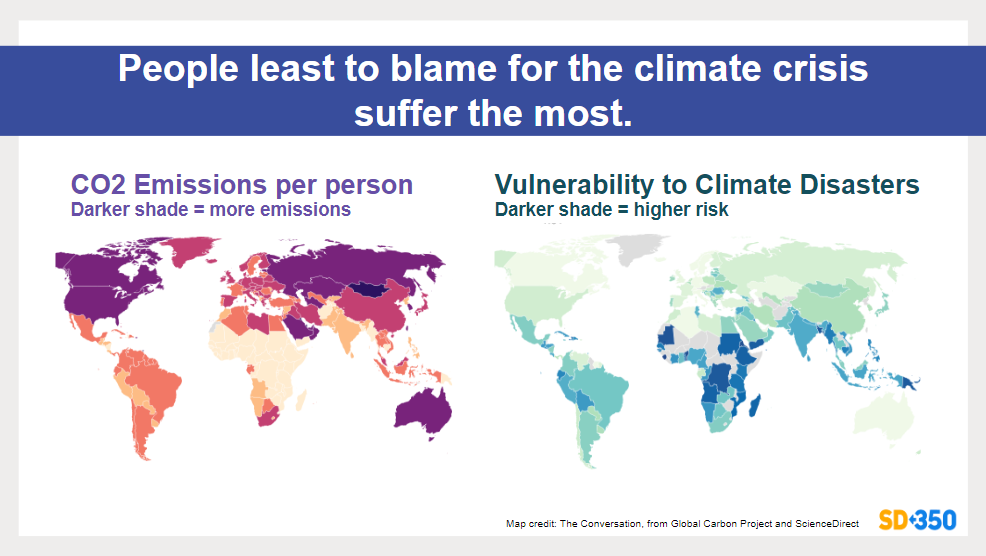By Susan Duerksen, JEDI Team Leader

“We wouldn’t have a fossil-fuel-based energy system if wealthy white people had to have a coal plant in their backyards.”
The SD350 workshop Climate Justice: Why Racial Justice IS Climate Action, on Sept. 1, opened with that quote from climate scientist Leah Stokes. A major point of the workshop was to describe how racism and wealth inequality are core causes of the climate crisis and must be addressed as part of climate activism.
Click on these links to see the workshop slides and links to resources used. Watch the workshop here.
The workshop, presented by the SD350 JEDI team, discussed the history of colonialism, slavery, redlining, and discriminatory zoning that created impoverished and segregated communities of people considered disposable by corporate and political powers. Those “sacrifice zones” made reckless pollution acceptable and dulled the urgency of developing clean energy sources.
Globally and within the US, the same communities suffering most from decades of exposure to toxins are also at highest risk from climate disasters.
The mindset of white supremacy continues to feed the climate crisis today, with huge investment in projects like the East African Crude Oil Pipeline, which threatens the land and water sources of 40 million people in Uganda and Tanzania. Would it go forward if those were 40 million middle-class white people? Likely not.
The workshop also explored the risk that some climate solutions might worsen racial and economic inequity. To name a few examples: Offsets and net-zero schemes often allow pollution to continue in hard-hit areas, better transit and parks could lead to gentrification, and mining for battery materials must be done in a way that is not exploitative.
We closed on a note of hope, with some examples of innovative solutions to climate injustice and anti-racism projects in the San Diego area. We are planning a second session later this year, focusing more on local examples of environmental racism and ways we all can get involved in solutions. Please join us to continue this discussion!
